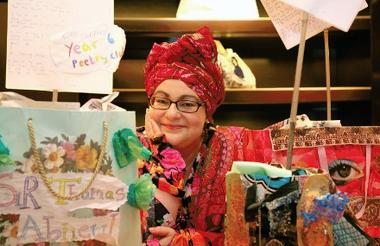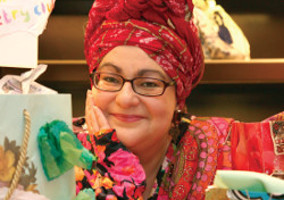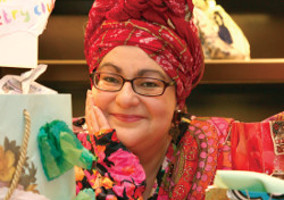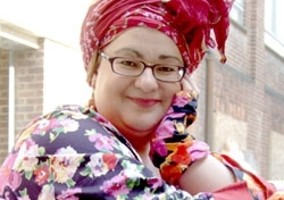Alice Sharman says last night’s documentary Camila's Kids Company: The Inside Story shows the founder had created a cult-like atmosphere that contributed to the charity's demise.
I didn’t expect to see anything I didn’t already know about Kids Company, but watching last night’s documentary I felt both shocked and angered by some of the things that were revealed.
Kids Company was definitely not typical of how most charities are run – and therefore should not be used as a stick with which to beat the sector. Despite this there are some lessons to learn.
What was abundantly clear throughout the documentary, was just how arrogant Camila Batmanghelidjh was. She seemed to believe that she, and she alone, could save the charity from the brink of destruction, and with it the staff and beneficiaries who had become dependent on it.
My colleague Kirsty Weakley has previously written about how this attitude ultimately led to the charity’s demise, but the fact that she invited a journalist, Lynn Alleway, to come and film her as she took on her trustee board and the government shows just how far she had gone.
But it also shows her naivety. Batmanghelidjh cannot have seen anything wrong with the way her charity was being run, or she wouldn’t have invited someone to film it. She also has categorically refused to apologise for, or admit any part in, the charity’s collapse.
Batmangheldijh never seemed to quite grasp how serious the situation was. She seemed to believe that her charity was - while not exactly above the law - certainly not under it. This was an attitude that was probably cultivated by her assumption that she had friends in high place.
As she said herself: “I never break the law, I just stretch it a little.” This was highlighted by the belief that the charity could use the money it had been given by the government for redundancy costs for other things, and her refusing to answer phone calls from HMRC. It's easy to draw the conclusion that she was a law unto herself.
Kids Company and its special cases
The film highlights a number of special cases which are troubling for a number of reasons.
One woman repeatedly shown in the film was 34-year-old Annie, originally from Jamaica. She was shown to have an almost hero-worship faith in Batmanghelidjh. The charity had supported her for numerous years, to the point that she seemed to have no concept of how her rent was paid – other than that Kids Company did it for her.
Kids Company, it seems, wasn’t just for kids.
The huge portrait of Batmanghelidjh on the wall of Annie's flat as you walked through the door showed that the founder created a cult-like obsession round herself.
Another example was a family where there was a second generation being supported by the charity, raising further questions about the charity’s approach. Kids Company created a situation where beneficiaries were entirely dependent on the charity – in a way that is certainly not typical of most “normal” charities. Instead of helping people to help themselves, it created an environment where beneficiaries were entirely dependent on one organisation. Is that really the best way of helping people?
This was highlighted by Annie who, who at the end of the documentary, was shown to now be claiming benefits – something we can only assume she would have been entitled to from the start.
This is something I find quite hard to stomach. Having been at the launch of a Kids Company campaign in which Batmanghelidjh spoke with passion about how the charity is doing a job which the government should be doing itself, I can’t help but question whether the charity failed to show its beneficiaries that there are other options for them. Surely Annie is not the only example of this.
Instead of spending a significant amount of charitable money on these special cases, the charity should surely have been educating people like Annie to help them become independent, and to become aware of the other options available to them.
This follows on from Batmanghelidjh’s view that every child deserves luxury – enter the charity’s “mansion with a pool”, where beneficiaries could go to recuperate. This story is one that Batmanghleidjh and her team tried to hide even from the documentary-maker, Alleway, before it appeared on the front pages of the tabloids.
Batmanghelidjh's passion remained at its heart
However, you can’t deny that Batmanghelidjh was passionate about the people her charity supported. And the fact that she has gone on to invest her time in a new charitable project shows much about her determination to help, and her resilience.
The trustees, which the PACAC report almost solely blamed for the charity’s demise, didn’t play a big part in Alleway’s documentary. However, from what was shown we saw that the relationship between Batmanghelidjh and the charity’s former chair, BBC executive director Alan Yentob, was fractious.
Governance appeared weak, with the documentary giving the appearance that trustee involvement was slim-to-none. Even Batmanghelidjh’s decision to invite the cameras in behind her trustees' backs shows this was one of the worst cases of “founder syndrome” that the sector has ever seen.
For me, one of the most heart-rending moments of the programme occurred near its end. Lynn Alleway confronts Camila, and you can hear her voice cracking, as she seems to realise that Batmanghelidjh is the cause of her own downfall.
Sadly it doesn't seem as if Batmanghelidjh herself will ever draw the same conclusion.
Related articles












